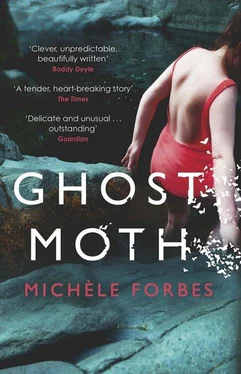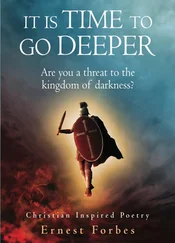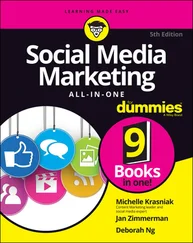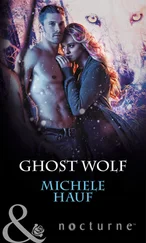But George had waited for her patiently all that time, his only aim being that she would be happy again, that she would finally agree to a life together with him, that she would set a wedding date. The two years of their engagement he had found difficult. Katherine knew this. He found her anger easier to handle, he had told her. At least then there was contact between them, albeit edgy. But when she pulled away from him, he said that he despaired of ever winning her back. His mother, Anna, had disapproved of Katherine’s behavior. No woman respected a man who spent his time walking on eggshells around her, she had said drily. She urged him to be firmer. But George was content to count his blessings, as he put it. He loved Katherine more than anything in the world, he had said. She had agreed one day to be his wife, and to him that was all that mattered.
And in the end, George’s love had indeed brought her back, offered her a new beginning, allowed her to let go of the past. Hadn’t it?
Why, then, has the past been haunting her again, as though there is unfinished business?
Is it because the world is trying to catch up with her? For, for her, it has been winter for quite some time. Since George rescued her from the sea, since she encountered the seal, the coldness hasn’t gone away. It has been her constant white companion, traveling at her elbow with an earnest expectation. It hangs around her now like an invisible hoary skin that she must shed. While she goes about her daily household chores. While she sleeps. While she dresses her children for school. While she embraces her husband before he goes to work. It hangs around her.
Whenever Katherine wakes up to the call of her children or to the rousing streaks of the winter’s yellow dawn coming through the bedroom curtains or to the telephone ringing for George, she feels exhausted. There is no sense of regeneration in her sleep. Tiredness fills her body and she carries the heavy dryness of it all day. It seems as though it is suffusing her whole body, circling in her blood until it reaches every fingertip, every cell, every last piece of her, reaching right into the insides of her, synapse after synapse. The children think she looks puzzled or confused, as though she is constantly trying to remember the name of something or decipher the sound of a distant voice. The blue-ridged veins along her hands feel tender and sore and seem to have grown bigger than they need to be. Her hair hurts where it joins her scalp. Her back hurts.
Nights are broken by the bad dreams of her children, who, while in their jittery somnambulant daze, can walk directly to the mother smell in the next room. Their bad dreams do not coincide, but stagger from one child to the other at different times during the night on different nights, as though each has taken it in turns to slumber-read a chapter of the same anxious story. Then there are the colds and coughs, the teeth hurting, the leg cramping, the snot-blocked noses, the aches of growing. Katherine comforts and rubs and reassures but finds herself, by breakfast time, a mere shadow. Nights that the children sleep right through, she is ill prepared for, and she wakes regardless, expectant and listening.
The tiredness calms her by disorientating her. It makes her selective. I can go shopping for groceries or I can take the children to the park, not both, she thinks, I can cook the dinner or wash the curtains, not both.
At its most intense, she is only hearing. A dog barking in the distance gives her a sense that there is life.
And then there is a nausea that beleaguers this calm. A nausea that sweeps periodically through her body. She feels herself falling down inside herself, slipping down, back down, into the red ocher sludge that her blood has become.
Since the summer Elsa and Elizabeth have had to consider the two alphabets. One alphabet is Catholic, where the letter h is pronounced haiche. This alphabet they have finished with for the day at school and so have packed it neatly back into their schoolbags. The other alphabet is Protestant, where the letter h is pronounced aiche . Even though things have quietened down in the city, they still routinely arm themselves with this particular alphabet on leaving school. As they have to walk through a Protestant neighborhood on their way home, chances are that Protestant children will stop them, and this semantic ammunition may work in their favor. All other clues that they are Catholic are, as usual, covered over by their navy coats.
They take the familiar route home, cutting across the junction on the Woodstock Road and then making their way along Jocelyn Avenue. Elsa spots them almost as soon as she and Elizabeth have rounded the corner: four boys, dragging their schoolbags along the pavement, looking for trouble.
“Elizabeth,” Elsa says quietly, “will we turn back?”
“No.” Elizabeth keeps her head down. “It’ll be all right.” The foursome slow their pace. Then the oldest boy in the group, a thin, wiry, long boy of about eleven, his hair shaved close to his head, makes a dash across the road toward them.
“Where d’ye think yer goin’?” His discolored teeth point inward. Ink streaks his cheek. The two girls remain silent and carry on walking. Within a matter of moments, the other three boys join the long boy with the shaven head. They form a ragged semicircle around Elsa and Elizabeth, blocking their way forward.
“I said, where d’ye think yer goin’?” The questioning is ritualistic, a way of searching for provocation in the least response, a question demanding the right answer. Elizabeth mutters, “Home,” her head bent low. Elsa says nothing. Then Elizabeth starts to cry.
“Are yous Fenians? Did yous hear me ask ye where ye fuckin’ live?” The long boy grows longer with the prospect of giving out a good beating. “Say the fuckin’ alphabet, yous wee fuckin’ Taigs. Say it!” Elsa and Elizabeth remain silent. Elizabeth wipes away the tears that are running down her face. “Have yous gone fuckin’ dumb or somethin’?” The long boy stands glaring at them. “Say the fuckin’ alphabet!”
Elizabeth lifts her head and is just about to start with the letter A , when suddenly, out of nowhere, a figure runs up from behind the group and pelts Elizabeth with eggs. Two, three, thrown at her face, another at her legs. The splat-splat against Elizabeth’s head confuses her. She raises her hands in protection, thinking someone has thrown stones at her, but then she feels the globules of egg white and yoke running down her face.
The group whoop and jeer, delighted with this surprise gift, satisfaction spreading over their faces like an infectious rash. The perpetrator hollers into the air and then scoots off across the road, gone perhaps to get more of his friends to gloat over his target. The long boy backs off. “Fuck yous,” he says. “Yous wee dolls need a hair wash.” He cackles wildly with his cohorts, leaving Elizabeth and Elsa alone.
Elizabeth stands sobbing, her face and hands slimy with egg white, a burst of egg yolk splattered on the crown of her head, shell caught in the strands of her hair, bits of eggs spotting the front of her coat. Elsa finds two egg spots on her sleeve. She rubs them off, then looks at Elizabeth. Passersby look, too, but make no remark, nor offer help.
Elsa wants to leave Elizabeth there and run away. But she doesn’t. They stand on the street, Elizabeth sobbing quietly, Elsa unable to comfort her.
Eventually, they shuffle onward, toward the bus, toward home.
On the bus, no one makes any comment, not even the bus conductor, who only shows some reluctance in taking the money from Elizabeth’s sticky hand. The egg in Elizabeth’s hair has a rotten smell. It feels like cool orange blood on her scalp. She sits on the bus with Elsa, still and quiet, holding her bus ticket, her schoolbag, and an unused alphabet.
Читать дальше












